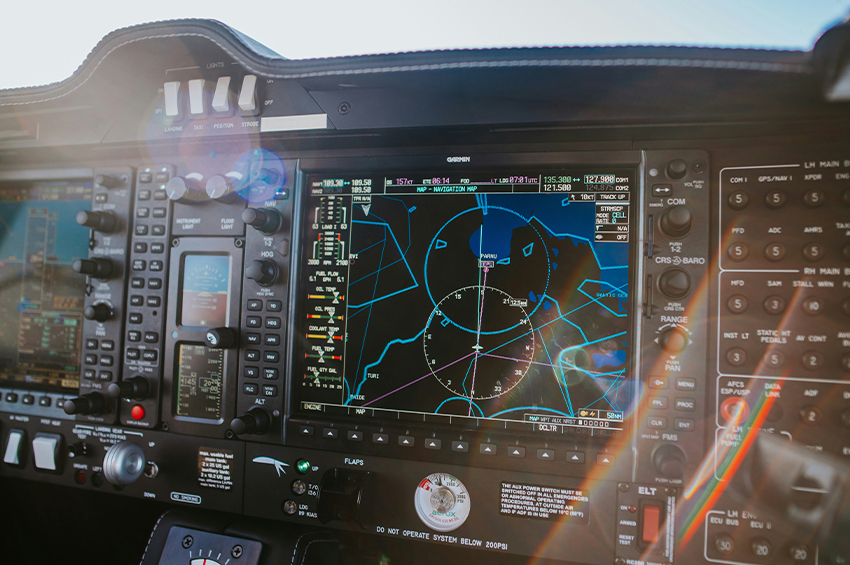
Aerospace Control Systems
NEXT START DATE:
September 24, 2026
APPLICATION DEADLINES:
Priority deadline: April 1, 2026
Final deadline: August 1, 2026
LOCATION
Online
DURATION
Approximately 12 months
TIMES
Evenings
TOTAL COST
$19,720 (estimated)
Program overview
This certificate program will give you a specialized understanding of aerospace systems and control for aircraft, spacecraft, and related systems. Through an intensive curriculum, you'll acquire knowledge and practical skills to design, analyze, and optimize control systems. You'll comprehensively explore flight dynamics and navigation. The program strongly emphasizes safety and reliability in aerospace systems and control, ensuring you graduate well-prepared to address these critical considerations professionally. Additionally, you'll participate in a culminating experience that integrates the analytical tools you've learned for the complete engineering system design cycle.
Designed for working professionals
If you want to learn how to design, analyze, and optimize control systems for aircraft or spacecraft while emphasizing safety and reliability, this certificate is for you.
Learn online
Our online classes are streamed live via web conferencing, and all sessions are recorded for later review.
Learning outcomes
- Develop a strong mathematical foundation that is necessary for analysis and design of control systems in the aerospace industry.
- Learn classical and advanced analytical tools for stability analysis of linear and nonlinear feedback control systems.
- Study the dynamic models and control design for stable and optimal flight vehicles.
- Apply the concepts and principles learned in previous courses to carry out a substantial part of the systems engineering design process.
- Consider the ethical and safety implications in engineering practice, including proper documentation of analysis methods, disclosure of assumptions and limitations, and consideration of potential risks to human safety and the environment.
Courses
Complete the courses listed below to earn the certificate. You may be able to take individual courses without enrolling in the certificate program.
Analytical Methods for Aerospace Engineering
AE 501 (4cr)
Applications of analytical and mathematical methods for aerospace engineering, including: ordinary differential equations, partial differential equations, linear algebra, vector calculus, integral theorems, complex analysis, optimization, and probability.
Classical Control Theory
AE 511 (4 cr)
Covers theoretic methods for linear systems in the frequency domain including nonlinear and linear systems; linearization of nonlinear systems; stability, controllability, and observability of linear systems; linear system representations in frequency and time domains; dynamic system response in time and frequency domain; and frequency domain control design.
Dynamics, Stability, and Control of Vehicles
AE 512 (4cr)
Covers stability derivatives; effects of stability derivatives on flight characteristics; dynamics of rigid bodies in air, space and underwater applications; responses to control inputs and external disturbances; handling qualities; control system components; sensor characteristics; stability augmentation systems; guidance and navigation; human factors; effects of limited communication; and multivehicle systems.
Introduction to Aerospace Systems Engineering
AE 597 (4 cr)
Introduce the complete aeronautics and astronautics systems engineering cycle and carry out a substantial part of the process while applying the concepts from previous undergraduate and/or graduate courses. Reviews the major subsystems present in every aero and astro system, with an emphasis on how these subsystems interact with each other and understanding of the effect of performance measures at both the system and subsystem level.
Certificate stackability
Students can choose to take the certificate independently or combine it with another eligible certificate to create a Master of Engineering in Multidisciplinary Engineering degree.
Application requirements
You will need to submit a resume or curriculum vitae, an unofficial transcript with at least a 3.0 cumulative grade-point-average, and a statement of purpose.
See all application requirements
Application deadline
Final Deadline August 1, 2026. We encourage you to apply by the priority deadline of April 1. We will review applications received between April 2 and August 1 on a space available basis. We do not accept applications received after the August 1 deadline.